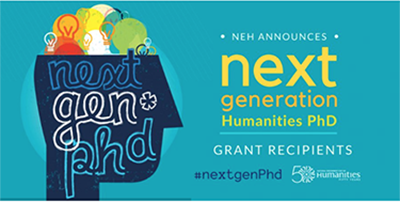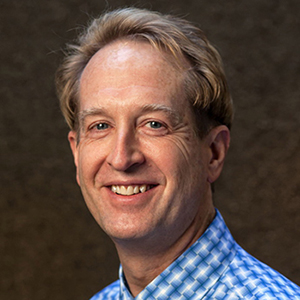Campus News
UC Santa Cruz receives NEH grant to broaden career opportunities for Ph.D. students
UC Santa Cruz is one of 28 colleges and universities nationwide to receive a grant from the National Endowment for the Humanities to plan and implement changes to graduate education that will broaden the career preparation of a Ph.D. student beyond a career in the academy.


The UC Santa Cruz Next Generation Humanities Ph.D. Planning Grant is part of a major effort launched by the NEH to transform the culture of graduate education, tackling the issue of how Ph.D. students who immerse themselves deeply in graduate humanities research and writing can look to apply their skills and experience beyond teaching and professor positions to a broader range of careers.
“The academic-focused future we’re accustomed to training graduate students for is disappearing,” said NEH Chairman William D. Adams. “If graduate programs wish to make a case for the continuation of graduate education in the humanities, they’re going to have to think about the professional futures of their students in entirely different ways.”
UC Santa Cruz Vice Provost and Dean of Graduate Studies Tyrus Miller noted that the Next Generation Humanities Ph.D. grant program represents a new focus for the National Endowment for the Humanities.
“Through the Next Generation grants, the NEH is seeking to catalyze creativity and positive change at a pivotal point: the training of doctoral students in the cultural fields,” said Miller. “They are encouraging faculty, staff, and administrators involved in graduate education–along with leaders outside of the university–to explore how humanities Ph.D.s might have more impact on public culture and public institutions.”
“The recipients of the Next Generation grants are a distinguished set of research universities, both public and private, across the United States,” added Miller. “The awardees will form a consortium, sharing ideas and best practices. It’s an honor and a sign of our recognized distinction in the Humanities that UC Santa Cruz was selected for a planning grant.”
Miller will be the director of the project funded by the $25,000 matching NEH grant, working in collaboration with the Institute for Humanities Research at UC Santa Cruz.
“The NEH grant will help UC Santa Cruz adapt to the new landscape of the humanities in the United States, both inside and outside of the university,” Miller noted. “The challenges of the current political environment and the academic job-market for humanities Ph.Ds. are real, as is the unsettled place of culture in a technology- and business-obsessed global society. But the NEH is betting that our humanities doctoral students and faculty are up to that challenge, and that they can continue to provide invaluable historical, ethical, cultural, and linguistic insight into our contemporary situation.”
Miller emphasized that the NEH grant is a planning grant, designed to support a year-long process developing ideas and initiatives to be shared with the Next Generation consortium and eventually with the broader public.
“Our planning efforts will be a genuine multi-partner collaboration, involving the Division of Graduate Studies, the Humanities Division, the Institute for Humanities Research, the UC Santa Cruz Libraries, the Alumni Association, and other entities on and off campus,” said Miller.
“We will also, of course, use the results of our planning to implement new ideas generated in the process and to seek additional grant funding for longer-term institutional change,” he added.
A principal part of the funding will additionally support a graduate student researcher associated with the project, who will help to coordinate it and provide input as a graduate student participant on the planning committee.
“Our graduate researcher will be Laura Cisneros of the History of Consciousness Ph.D. program, whose background in law offers a perspective and set of experiences in another field presently undergoing rapid change and adapting to a new professional context,” said Miller.
The planning committee will also work with the Alumni Association to use its Career Alumni Network as a mentoring and professional development resource for Humanities Ph.Ds.
“We will be bringing to Santa Cruz selected Ph.D. alumni who have pursued a variety of career paths in government, administration, and cultural institutions,” said Miller. “These alumni will provide input to our planning process and share their experiences, informing us about how their doctoral training did or did not prepare them for their professional paths.”
“We will also be developing syllabi for a set of professional course modules that students can take to supplement their regular degree-program course work and broaden their career opportunities–particularly for professional employment outside of the academy,” he added.